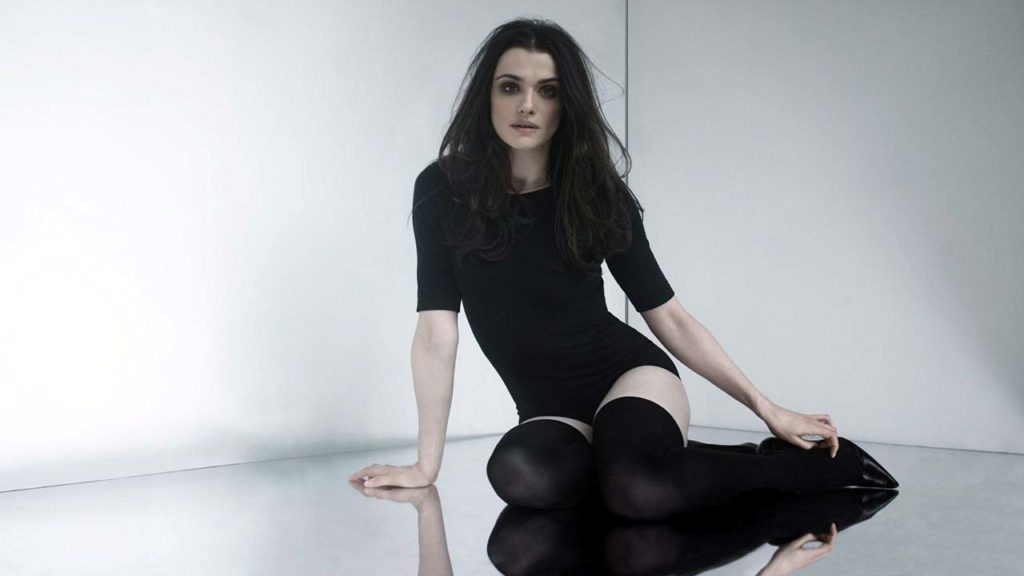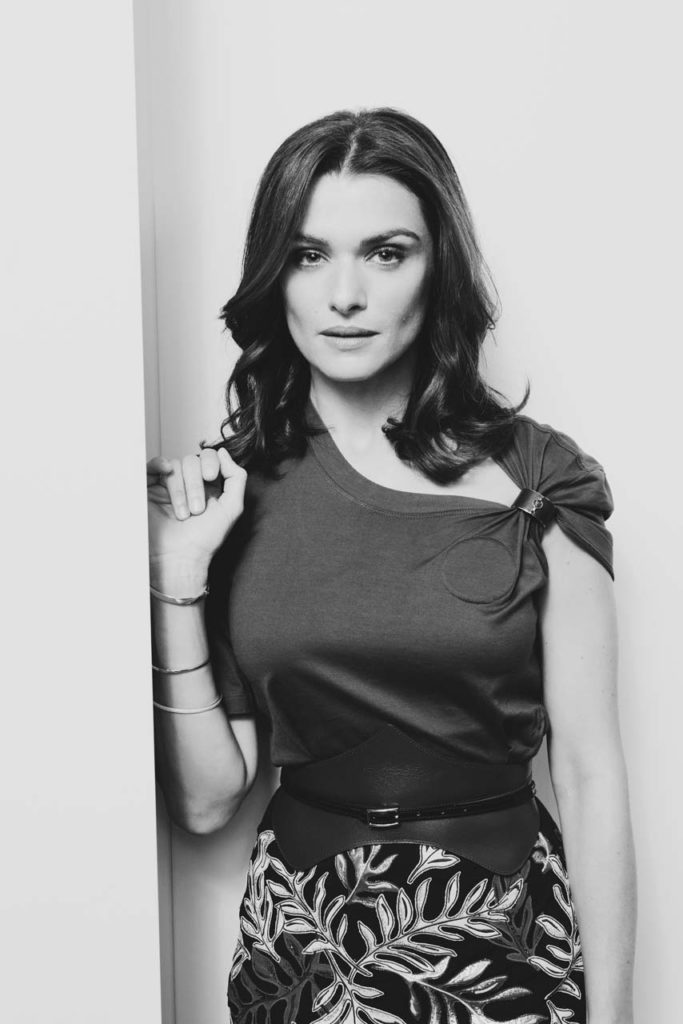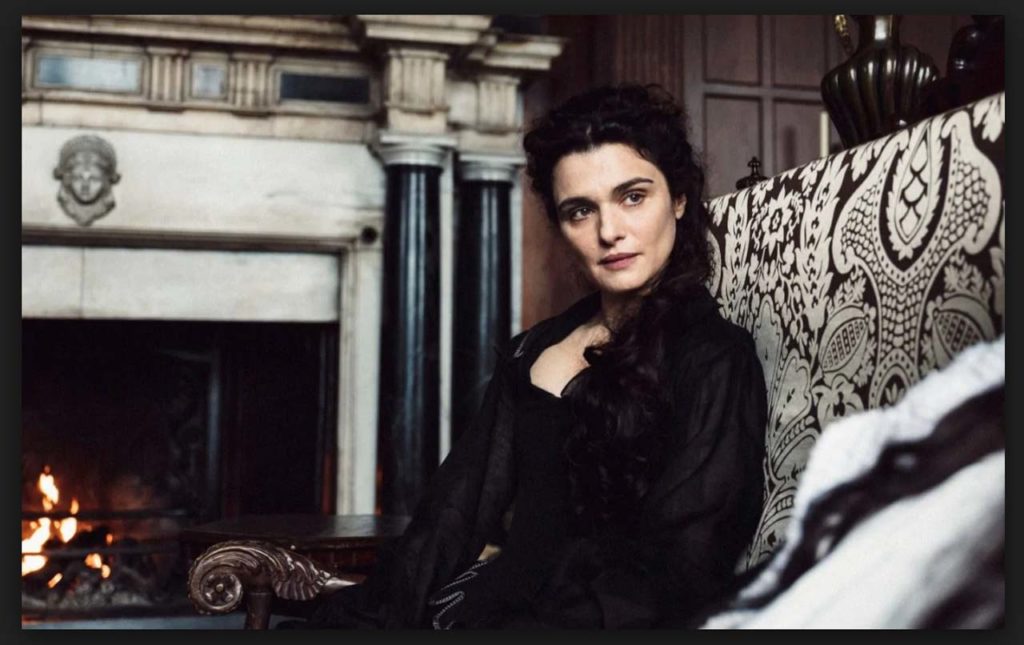IN THE NOVEMBER 23 RELEASE THE FAVOURITE, THIS ACADEMY AWARD WINNING ACTRESS PLAYS ONE THIRD OF A LOVE AND POWER TRIANGLE SET IN UK QUEEN ANNE’S PALACE. SHE EXPLAINS THAT, THOUGH HER ROLE OFTEN PLAYS OUT IN MADCAP FARCE, THERE ARE SOME UNIVERSAL AND DARK TRUTHS AT WORK WITHIN
BY MATT SCANLON
What was formerly an arrangement of realms officially became Great Britain in 1707 under the reign of Queen Anne, who, after the parliamentary Acts of Union were executed, ruled England and Scotland as essentially a single state (she was also, and separately, Queen of Ireland until her death in 1714). The last of the Stuart ruling line, Anne had, by a number of accounts, an unhappy life. Sensitive and conscientious, she was also described as homely (shortsighted, somewhat stout, small in stature, and frequently ill), and her husband, Prince George of Denmark, by pretty much all accounts, was both an alcoholic and psychologically abusive. (Anne’s father, King James, famously remarked of George that, “I have tried him drunk and I’ve tried him sober, but there is nothing in him.”)

In The Favourite, directed by Yorgos Lanthimos and written by Deborah Davis and Tony McNamara, a frail Queen Anne, played by Olivia Coleman, is a ruler in name only. A close ally, Lady Sarah Churchill (played by the Westminster, Londonborn Academy Award winner Rachel Weisz), actually governs, while tending to Anne’s ill health and frequent temper tantrums. This fraught psychological landscape is made rockier still upon the arrival of a new servant, Abigail Masham (Emma Stone), who manages to charm her way into the Queen’s company, and it isn’t long before a raucous competition ensues as to who will be the true confidant of one of the most powerful women on earth.
Though it takes place at a time when Great Britain is rapidly becoming a global power, The Favourite set for a November 23 nationwide release takes place in an enclosed world of claustrophobically draped rooms and darkened palace spaces, and even though its script often plays out as madcap farce, there are some unsavory truths at work, according to scriptwriters.

To research this fascinating but relatively little explored historical triangle, Davis researched a trove of letters, Churchill’s, Anne’s, and Abigail’s among them, and explained that, while a vivid picture of Sarah has been painted by her own memoir, “the original evidence for Abigail is sparse and comes mainly from Sarah,” she said in a Fox Searchlight Pictures and Waypoint Entertainment studio interview. “There were interesting snippets to be found elsewhere, where Abigail emerges as a ruthless chambermaid, and her trajectory clearly reveals her ambition.”
“The story is about how complicated love is, and how who you are as a person can be perverted and deformed by those complications,” said McNamara. “We called it a comic tragedy. It’s about these people who love each other, but there are so many other aspects of their personalities and aspects of what they want in the world that get in the way of staying in love.” Weisz, who had worked with Lanthimos on the 2015 dystopic comedy The Lobster, knew the director’s penchant for constructing alternate realities, and from the start, embraced a kind of surrender to them.

“The universe he creates is always unique to his sensibility, and couldn’t be replicated by anybody else,” said Weisz, who earned a Screen Actors Guild Award, Golden Globe, and a Best Supporting Actress Academy Award for her role in The Constant Gardener (2006). “Tonally, the film is a pure creation of Yorgos and how he creates tone is perhaps the most brilliant and mysterious thing he does,” adding that “He gives elusive notes… elusive yet simple. There’s always a sense of mystery.”
Her depiction of Lady Sarah Churchill, Weisz explained, was a balancing act. On the one hand, she wanted to pay tribute to the actual Churchill, regarded as among the most central and powerful political figures of her time, but also to allow for a degree of experimentation in the emotional dialog with the Queen one that involved genuine affection, certainly, but also emotional (and actual) blackmail.
“The Queen and Sarah have a very complicated relationship that is constantly shifting. It’s impossible to sum up in a sentence,” noted Weisz.
“The Queen needs Sarah and Sarah, I think, loves to be needed by the Queen. Neither politics, nor battle tactics, nor running the country are Anne’s strong suits, and that’s all very appealing to Sarah. Yet they are also Childhood best friends who make love to one another. To me, their relationship gets into all kind of themes of sexual politics, power games, emotional needs, dependence, dominance and subjugation, as well as pain, protectiveness, and healing.”

One of the most perplexing and galling aspects of Abigail (Stone), at least to Lady Churchill, is her outright rejection of the norms of English social mobility, and Weisz’s character is forced to watch as Abigail begins her semi comic reign of terror as a scullery maid who ultimately ascends into the Queen’s company, and bedroom.
“I love how Abigail unfolds. She has a great amount of confidence and she is a real survivor,” Stone said. “She is always listening and paying attention and using what she learns.”
“[Churchill] really misjudges Abigail, I mean completely,” said Weisz. “She perceives her as being needy and weak because she’s fallen on such hard times, and because her father lost his own daughter gambling. I think Sarah initially feels tenderness and compassion towards Abigail. She wants to protect her and teach her how to be a strong woman. It turns out that Abigail needs no help whatsoever.”

Weisz has a home in Brooklyn with husband Daniel Craig, with whom she had a baby girl in late summer. Of the baby’s American and English upbringing, she joked in a September interview with Stephen Colbert on The Late Show that “I suppose it will have to be bilingual.” She is currently in pre production on the film Cloud One, written and directed by Goran Dukic (Wristcutters: A Love Story). Based on the short story Windows by Etgar Keret, it tells the tale of Mickey, a man who’s lost all his memories after a car accident, and is placed in a rehabilitation center that uses virtual reality as a part of therapy. Weisz plays his virtual friend, Natasha, with whom Mickey’s therapist is in love.
